Just Sew Stories
A new wave of Vermont athlete/entrepreneurs is stitching together gear for the outdoors.
By now, the story is almost a legend: In 2003, Cabot Hosiery of Northfield was facing tough times. The family-owned private label sock maker was looking at layoffs. Then Ric Cabot, son of the owner and a die-hard snowboarder and outsdoorsman, came up with an idea: Cabot would make its own brand of bullet-proof socks for the outdoors and offer a lifetime guarantee. Fifteen years later, Cabot’s Darn Tough is booming, adding new knitting machines and hiring new employees in Northfield. Starting in January, it plans to churn out an additional 1.5 million socks.
Darn Tough is just one of Vermont’s outdoor apparel success stories, along with brands such as Burton’s apparel line and Turtle Fur headwear. Others have come and gone: Jogbra started here in 1977. Ibex wool clothing was born in Woodstock that same year. Isis women’s activewear came into being in 1998 (Isis founder Poppy Gall now designs for Darn Tough.) Those brands were bought, and, in some instances, shuttered, but plenty of new ones are moving in.
“Vermont is a fertile proving ground for all sorts of innovations,” says David Bradbury, president of the Vermont Center for Emerging Technology, an incubator that provides coaching, co-working and mentorship and has spaces in Burlington and Middlebury. “We have a lot of top athletes here. They know what they want from a piece of gear or apparel and if they can’t find it, some just go off and make it themselves,” says Bradbury. “Think of the Burton AK line—no one else was really making high-end, technical snowboard apparel— or Eva Shaw’s HoodE, which she created because as a ski racer, she was cold and wanted something to wear over her helmet.”
Bradbury has helped a number of recent start-ups—ranging from Renoun skis and Skida hats to student projects at Middlebury College such as Overeasy and SheFly—and VCET is just one of several organizations dedicated to growing start-ups in Vermont.
Russ Scully, owner of WND&WVS surf shop in Burlington and founder of the Burlington Surf Club, recently announced plans for Hula, a co-working space that will occupy the site of the former Blodgett Oven building on the waterfront, just west of the surf club. “I can see outdoor businesses being attracted to move here—we have a great lifestyle. How many other places can you leave your office if it’s windy and walk downstairs to kiteboard or SUP at lunch in the summer, or be skiing in an hour in winter?”
Co-working spaces and incubators have taken over Burlington and are popping up around the state, ranging from The Lightning Jar in Bennington to Valley.Works in Waitsfield to the Incubator Without Walls (iWOW) in Lyndon. “Think how cool it is to know you can have an office space just a few miles away from Kingdom Trails,” Bradbury says of iWOW.
Thirteen years ago, Fresh Tracks Capital’s Cairn Cross launched Peak Pitch as a way for start-ups to pitch their companies to potential investors. The twist? The pitch takes place on a chairlift ride at Sugarbush each year. Alumni of Peak Pitch have grown into early-stage ventures such as Renoun skis and Powe. Snowboards.
“There’s a principle in business that the faster you can prototype, build, test and improve, the faster you can come up with a good product. In Vermont, it’s easy to do if you’re creating an outdoor product because we have so many experts in outdoor gear willing and ready to test,” says Cross.
In 2014 Cross took the Peak Pitch idea on the road—literally. Road Pitch is a sort of Hell’s Angels-meets-angel investors motorcycle tour of Vermont where the riders (mainly venture capitalists and successful entrepreneurs) meet with start-ups and listen to pitches in towns around the state. And from 2018’s Road Pitch several new businesses are blossoming in the outdoor field, including SheFly.
Here’s a sampling of what Vermont’s new entrepreneurs in the outdoor apparel industry are up to. Some of these companies may not be around in five years but the others? They just might become the next Jogbra or Burton or Darn Tough.
Mana Threads: Exercisewear with Flair
If you ask Brazilian Amelia Leme what brought her to Vermont she laughs and quickly says “Snow. ” But that’s not the whole story. She arrived, originally as an au pair, studied at St. Michael’s College and went on to get her MBA.
However, “the corporate life wasn’t really me,” says Leme. After returning to Brazil, she and her boyfriend (now husband) moved back to Vermont in 2008. “I loved snowboarding, had started mountain bike racing, and became a personal trainer,” Leme recalls. “But I missed all the bright colors of Brazil so I started making my own clothes.”
These days, Leme, now 42, is more into surfing and stand-up paddleboarding. Which explains why the newest shoot for her clothing line, Mana Threads, took place at the Burlington Surf Club. The money shot (below) shows the various elements of her line–stretchy running tights, electric cycling shorts, bra tops and skorts.
Mana Threads started out as a collaboration with her sister, who lives in Brazil. “I couldn’t find exercise gear here that was really fun. I found that by making small-batch activewear I could use lots of different colors and designs, versus the all-black that larger companies often have to make.” Mana Threads launched with a retail shop on Church Street in Burlington in 2015. “We did $10,000 in sales the first day it opened,” Leme recalls. The shop was open for a year before she decided online sales was a better business.
This year, Leme is taking a new direction: “We’re going to be making our line here in the U.S. and using fabric that’s not only recycled but also biodegradable,” she says with pride. manathreads.com. –Lisa Lynn
SheFly: Solving an Age-Old Problem
Georgia Grace Edwards was working 10- to 12-hour days as a guide on Juneau, Alaska’s Mendenhall Glacier when, as one of the few female guides, she noticed how the work was different for her than for her male co-workers.
To relieve herself on the glacier, Edwards had to trek across the ice field in her boots and crampons, avoiding crevasses, until she could find some privacy, which usually came in the form of a large piece of ice or a boulder. She’d then shed her three or four layers of clothing in sub-zero temperatures, answer nature’s call and hike back to work. “It was a waste of time, a waste of energy and it usually left me feeling cold for hours afterward, to the point where I started cutting my water consumption,” Edwards said. “After a few weeks, I thought, ‘There has to be a better way to do this.’”
That was in 2016. Shortly after, Edwards developed the idea for SheFly, “a layerable line of outdoor pants for women that allow them to easily relieve themselves outside,” as she describes it.
Back at school at Middlebury College, Edwards enrolled in Middlebury Entrepreneurs class taught by VCET’s David Bradbury and Sam Roach-Gerber. Over her winter break, Edwards taught herself how to sew, and came back to campus with several pairs of snow pants, outfitted with zippers that went all the way around, from front to back.
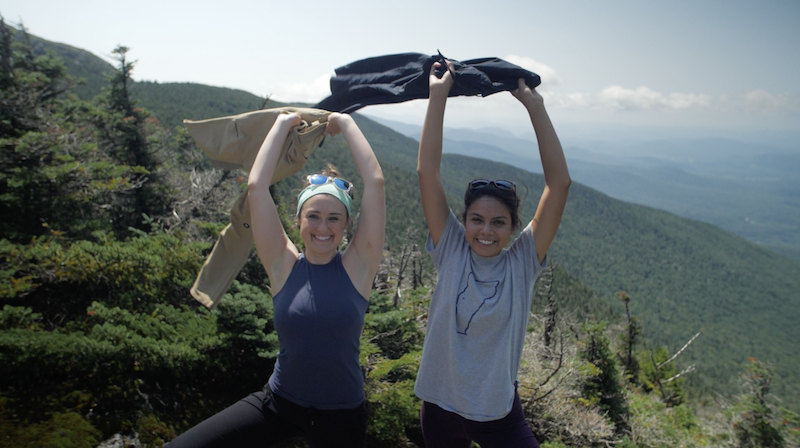
One of Edwards’ first class projects was to develop a market survey. After receiving more than 100 responses in less than 24 hours, Edwards found that 25 percent of young female adventurers she surveyed on Middlebury’s campus had an “accident” in the outdoors in the past year.
“One in four grown women at Middlebury College peed their pants in the past year because they couldn’t get their clothing out of the way in time or they couldn’t get to a bathroom in time. It’s pretty crazy if you think about it,” Edwards said.
So with the help of her co-founders, fellow Middlebury College students, Bianca Gonzalez (a member of a Taos, N.M. search and rescue team) and climber and guide Charlotte Massey, Edwards set out to make SheFly a business. At first, she modified pants that her friends and family members owned to include wrap-around zippers. Now, she says, SheFly is trying to create pants of their own design from start to finish.
“Pants were invented for men, and haven’t really been modified since then,” she says. “We are tired of the shrink-it and pink-it strategy in women’s outdoor clothing design,” SheFly’s website reads.
Despite facing the challenges that come with starting a business while being a full-time student, Edwards and her team have received their fair share of accolades. In 2018, SheFly won first place in Burlington’s “Soup” pitch competition, held at the co-working space Study Hall Collective, and won second place in Middlebury Entrepreneurs’ Final Pitch Competition. SheFly was the regional winner for Road Pitch and made it to the finals in Burlington on Oct. 17 where, according to Cross, they earned the second-highest score, just shy of winning the grand prize.
Perhaps the most exciting competition: SheFly was chosen from more than 200 applications to be part of Title Nine’s Movers and Makers Pitch Fest in the San Francisco Bay area. “The cool thing is Title Nine is interested in talking with us,” says Massey of the national women’s apparel brand.
The SheFly team now has a patent pending and hopes to create a fundraising campaign via Vermont iFundWomen to complete the research and development stage and pair with a manufacturer. Edwards and Gonzalez have graduated (Edwards is a Fulbright Fellow now studying in the Czech Republic) but still phone in for meetings. Massey is a senior and juggling finals with growing the business.
In the meantime, SheFly, which began by making snow pants, has expanded into hiking gear and long underwear and is busy fulfilling its first major order: Middlebury Outdoor Programs’ Equipment Room, which provides outdoor gear for college students to rent free of charge, has ordered 10 pairs of SheFly’s “Long Janes” long underwear. Sheflyapparel.com —Rachel Cohen
Overeasy: Slope Style Hoods
Eva Shaw grew up ski racing in Vermont so she knows cold. And cold was the inspiration for the Middlebury College student’s start-up, Overeasy.
Shaw, who raced alpine for Burke Mountain Academy, is from a family of ski racers. Her father, Tiger Shaw, was an Olympian and now heads up U.S. Ski and Snowboard and her relatives still operate Shaw’s General Store in Stowe.
Eva learned to sew in a home economics class in seventh grade and over a break from college in December 2016, experimented with making an over-the-helmet hood.
The result was the first HoodE: a faux-fur creation that rests on top of a skier’s jacket and can be pulled up and over the helmet while skiing or sitting on a chairlift. The garment has drawstrings that let you pull it snug against a helmet so it stays on while you ski. When the hood isn’t needed, the drawstrings can be loosened so the HoodE inconspicuously falls to the shoulders to look like a fluffy tube scarf. There are also fleece-lined flannel patterns available, as well as wind and waterproof models.

“I wore it over my helmet at the mountain on a few really, really cold days, and people kept asking me where I got it. I thought, ‘Wow maybe there’s a market for this,’” Shaw said.
With just her sewing machine and a few yards of faux fur, Shaw launched an Instagram account in 2016 and started taking orders for HoodEs. Soon she was scrambling to keep up.
“I made over 175 HoodEs last winter with the help of two Green Mountain Valley School students,” reflected Shaw. “At our best, we could make four or five in an hour.”
Shaw said that each HoodE takes about 40 minutes to construct, start to finish. She continued like that, balancing orders and sewing with school at Middlebury College, until this past January, when she enrolled in the Middlebury Entrepreneurs January Term course. Like the SheFly gang, she got coaching from VCET.
After hearing Shaw’s pitch, Bradbury and Roach-Gerber advised that she go all in, hire seamstresses and launch a website.
In the first day that overeasy.co was up and running, the company did $1,300 in e-commerce sales. “We just had one seamstress and we didn’t even really have all the materials in hand,” said Shaw, who promptly hired more seamstresses and brought in classmate and family friend Meg Collins to help out.
In September, 2018, Overeasy was one of seven finalists out of 44 applicants in the Female Founders Start Here Challenge, sponsored by VCET. As runner-up, Overeasy (which recently trademarked its name) won $5,000. Starting this fall, most of Overeasy’s HoodEs will be made at Vermont Teddy Bear Company, which will allow the company to produce several hundred products at a time. No seamstresses have been laid off as a result of this transition—Shaw plans to keep them on board to spearhead product prototyping and any custom orders.
For now, HoodEs can only be purchased online, but look out for them in Vermont outdoor retail shops in the next year, or on the slopes at the Middlebury Snow Bowl. overeasy.co —Abagael Giles
Kaden: an MTB Line for Women
Chelsea Camarata grew up in New York but after graduating from Champlain College in 2009, knew she wanted to stay in Vermont. Then she got into mountain biking. That not only sealed the deal but gave her a new idea: “I quickly realized that it was really hard to find good mountain biking apparel for women that wasn’t really loud and that fit well.” So, she brushed up on her sewing skills and began designing jerseys for herself. “After a while, I got to where I had something I really liked,” she remembers. She launched a Kickstarter campaign, which earned her $5,000, built a website and named her brand Kaden (“kind of like the cadence on a bike,” she says).
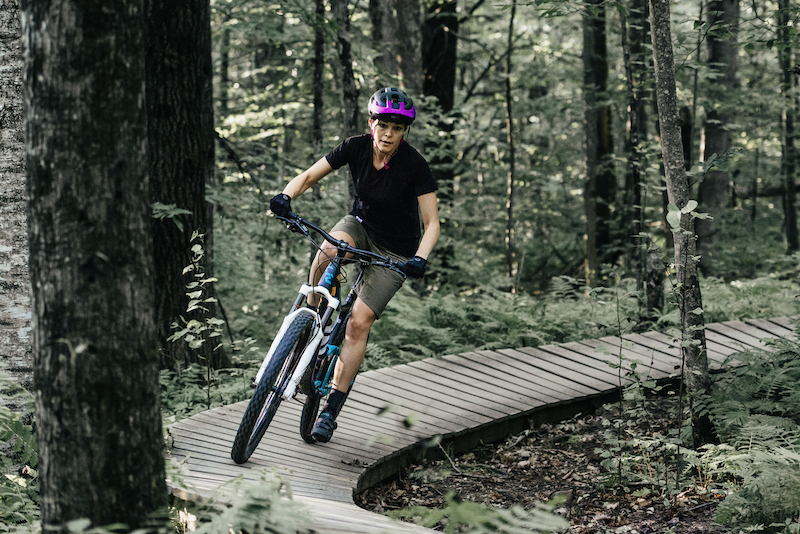
Now in its first year, Kaden has two styles of jerseys for sale and will come out with a pair of cycling shorts for 2019. “These are designed for women mountain bikers,” says Camarata. “They have lots of articulated areas so they move with you and don’t ride up and gussets under the arm to reduce chafing.” The colors and styling are simple and muted. “I wanted something you could wear out after cycling too, say if you grab a beer with a friend,” she says.
The line has already been picked up by three shops (Earl’s Cyclery in Williston, Waterbury Sports and the Village Sports Shop in Lyndonville) but Camarata, who has worked in digital marketing for Dealer.com and now Vermont Bicycle Tours, also hopes to grow her retail presence and direct-to-consumer sales through her site. Putting her MBA from Southern New Hampshire University to work, she wears just about every hat in the company–from design to marketing. kadenapparel.com —Lisa Lynn
Skida: Hats and More for Athletes
If there’s one person that the founders of SheFly and HoodE can look to as a role model, it’s Corinne Prevot, 28. In 2006, Prevot, a Nordic racer, started stitching together stretchy fleece-lined hats for her teammates at Burke Mountain Academy. By the time she graduated from Middlebury College in 2013, Prevot had founded Skida (Swedish for “snow”).
This past May, she made Forbes magazine’s national list of “30 Under 30 in Manufacturing” and was also featured in Outside magazine. Prevot’s hats are ubiquitous now, often seen on the heads of Nordic Olympic team members.
Prevot, who is based in Burlington, frequently travels to Nepal where she sources the cashmere for her new line—and gets some mountain biking in when she can.
In 2011, she received an order from a man who wanted to give 12 hats to his wife, who was undergoing cancer treatment, and her medical team. Instead of selling the hats, Prevot came up with the Skida Plus One concept, which allows customers to use a Plus One checkout code to help send an extra hat to a patient at one of eight cancer hospitals around the country. In 2017, Skida sold more than 100,000 Vermont-made products, Forbes reports. skida.com —L.L.
Orsden: Affordable Ski Wear
Recently, Orsden founder Sarah Segall was walking down the streets of New York City when she spied someone in one of her ski jackets. “Of course, I ran up to them and asked them how they liked it—and the response was all positive,” she says. For the past three years, Sarah and her husband Steven have been building Orsden, what she calls an “affordable” ski-wear brand, as a direct-to-consumer business from their home near Stratton, Vt.
The line features men’s and women’s jackets and pants—all made with technical, four-way stretch materials—in muted colors. “I like a slimmer profile when skiing,” says Sarah, “but I found a lot of the slim profile jackets and pants just didn’t flex or move and they were expensive.”
Segall, a 2007 Dartmouth grad, and Steven met at Columbia Business School where they were both pursuing MBA programs. Steven had been a ski racer, Sarah an avid skier. She went on to work for a variety of high-profile retail and apparel companies including Revlon, Berluti, The Jones Group and Hermes.
Segall grew up skiing at Stratton and realized there was an opportunity for a new line of ski wear. “I heard so often from other women they were constantly cold,” she says. Instead of creating another puffy, boxy jacket, she worked with designers to create a tailored one, with a unique attribute: a zipper that goes diagonally across the body, finishing on one side of a high neck. “This allowed us to create that great high neckline that you can snuggle your face down into when it’s cold,” she says. The men’s version also has a high neck and hood, but the zipper is in its traditional position.
“We’ve been starting slowly,” Segall says, “doing all of our retail online and direct to consumers.“ One thing that has helped is being in Vermont. “There’s a real commitment to buying local here and Vermont skiers are passionate and like to support their brands.” orsden.com –L.L.
Jerry of the Day: Respecting the Send
Some people have learned how to make money by looking good on Instagram. Burlington’s Colton Hardy has made money by looking bad, or at least hilariously goofy.
“I never really had a plan from the beginning,” says Hardy, founder of Jerry of the Day. The website started off as a joke. Hardy was ski racing for the University of Vermont alpine team when teammate Tim Kelley (of the Cochran-Kelly ski racing dynasty) brought four pairs of boots to test one day but forgot his shin guards.
Hardy took a photo of Kelley and uploaded it to Facebook with the caption “Jerry of the Day.” That was in 2012. Since then, Hardy has made a practice of uploading anything that strikes him as goofy (jeans and football jerseys on the slopes, fur and most anything with an animal print), reckless, inept, or simply funny to his blog and to Facebook, Instagram and YouTube.
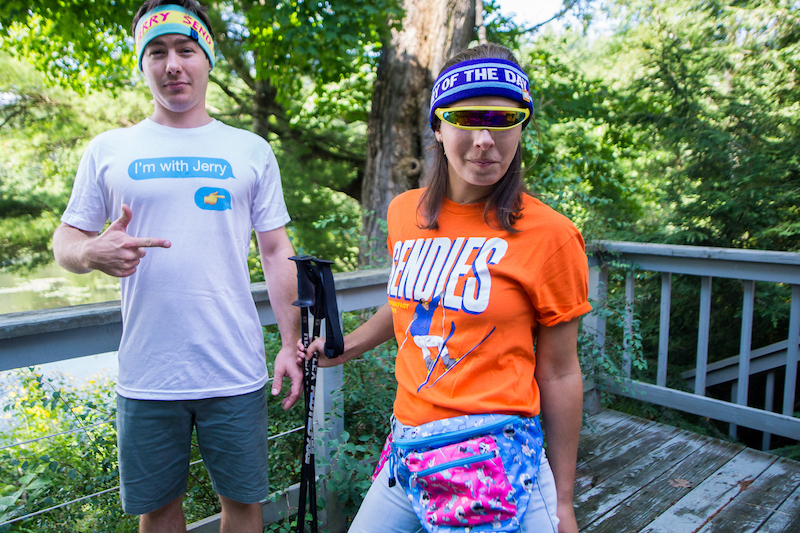
There are photos of people in one-piece ski suits with goggles on upside down, videos of skiers crashing into liftlines at high speed, gear blowing off roof racks and plenty of big sends… that didn’t quite make it. Jerry has also extended into other seasons. Recent footage (or footy, as Jerry would say) shows a news anchor doing a live report, oblivious to an ATV that crosses the road behind her… and flips.
Hardy now gets nearly 300 submissions a day and has more than 2,300 Instagram posts and 1.4 million followers.
Early on, Hardy started selling t-shirts with the motto “Respect the Send.” That’s morphed into a whole line of ironically goofy gear. “It’s gear that you would get as a gift,” says Hardy—things like a purple fanny pack with skiers all over it, a sweatshirt designed to look like an ugly Christmas sweater.
“It’s almost become this meta thing: people are ordering things like the Send-o-Vision glasses, then wearing them in photos and videos and doing something stupid just so they can be featured as Jerry of the Day,” says Hardy.
Behind all of this funny business, Hardy has managed to make enough to create a full-time job for himself and his girlfriend Linsday Laird, who helped design the first t-shirts. A team of designers now churns out more than 40 items, but Hardy has final say as to what gets sold. jerryoftheday.net –L.L.
Ski the East: Born from Ice, Raised in New England
This month, you’ll see something new dropping from Ski The East, and it’s not another ski video showing sick lines and big air. Nor is it another hoody with the now-famous Ski The East logo. No, it’s a new line of apparel– “Eastward,” described as a “an outdoor lifestyle brand designed with a sense of place; inspired by the unique weather, terrain and history of Eastern North America.” The line is being sewn in India by Fair Trade-certified factories and will use organic and recycled materials. “We’re committed to environmental, social, and sustainable pursuits,” says Chris “Rooster” James.
Eastward is the latest way that James and his business partner and buddy Geoff McDonald have managed to reinvent themselves in what could be called one of New England’s longest-running (and only) apparel/action sports film start-ups.
“Born from Ice,” is the tagline that often appears on the more than 600 SKUs (items) that have come out of the Williston offices of Ski the East. It’s also been the inspiration, for all that the two friends have produced in the last 14 years. “We met as freshmen at UVM,” says James, “and just started skiing together, filming each other and doing crazy things. We’re both from the East Coast and no one was really celebrating East Coast skiing.”
“Natural Force,” their first official film produced under their Meathead label, played to a standing-room only crowd of about 350 at UVM’s CC theater. Within a few years, they were touring films to more than 50 locations around New England and had lined up sponsors such as Subaru, Eastern Mountain Sports, Head Skis, Ben & Jerry’s, Clif Bar and others. “When I told my dad this is what I wanted to do after college he told me, “You’re living a pipe dream–it will never work,” James recalls. “Yeah Dad, that’s right I’m living the dream…” he remembers saying.
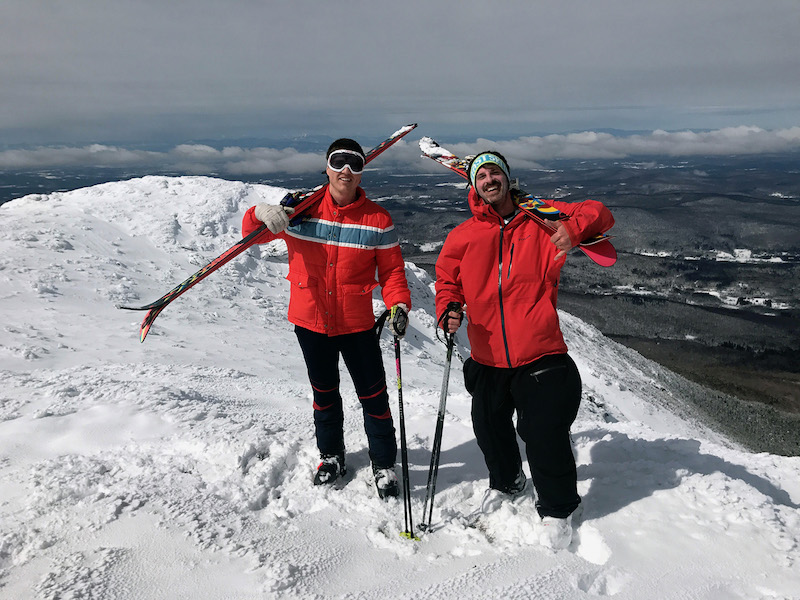
As the college buddies began touring their films, they began distributing the now-ubiquitous Ski the East bumper stickers.
It didn’t take long for the stickers to morph into a brand and a brand to morph into a clothing line. In 2015, they opened a retail shop but soon realized the traffic wasn’t there. Where it was, was online: With more than 90,000 followers on Instagram they had a solid market.
And that’s a market they hope to extend with Eastward. skitheeast.net –L.L
The Vermont 30
If you’re looking to buy local this holiday season, these 30 established brands are based in the Green Mountain state.
Adirondack Guide Boat: heirloom, handcrafted rowboats
Budnitz Bicycles: High-end belt-drive titanium bicycles
Burton: snowboards and apparel, Anon goggles and helmets
Clustas: magnetic weight balls
Concept2: rowing, cycling and ski ergs and oars
Darn Tough: socks with a lifetime guarantee
Dion: performance snowshoes for running and racing
Dodge Boots: custom-fit carbon fiber ski boots
Hammerhead Sleds: performance sleds
Height of Land Publications: Backcountry, Cross-Country Skier, Mountain Flyer and The Alpinist magazines
Hemetic Trading Co.: Backpacks and luggage
J Skis: limited edition, hand-signed skis
Julbo: The French maker of goggles and sport glasses has its U.S. headquarters in Williston, Vt.
KneeBinding: ski bindings designed to save ACLs
Kombi: gloves, mittens and base layers that know cold
Louis Garneau: cycling gear from Canada, made in Newport, Vt.
Mad River Rocket: sleds you can steer like a canoe
Norton: classic toboggans
Orvis: fly-fishing gear and apparel
PowderJet: build-your-own snowboards
Powe. Snowboards: craft snowboards with eco-friendly design
Renoun: carbon skis with hyper-damping technology
Rome SDS: snowboards, bindings and accessories
Silo: hand-crafted, custom made skis
Snurfer/Vew-Do: the precursor to the snowboard, and
Vew-Do balance boards
Terry: cycling apparel, saddles and accessories for women
Turtle Fur: hats, headwear and accessories
Untapped: maple-based all-natural athletic fuel
Warren Pieces: handcrafted wood longboards and skateboards
WhiteRoom: custom-crafted wood skis
Featured Photo Caption: Mana Threads’ Amelia Leme (far right) creates bright, stretchy shorts, leggings, skorts and tops for everything from cycling to stand-up paddling. Photo courtesy Mana Threads/Ali Kaukas

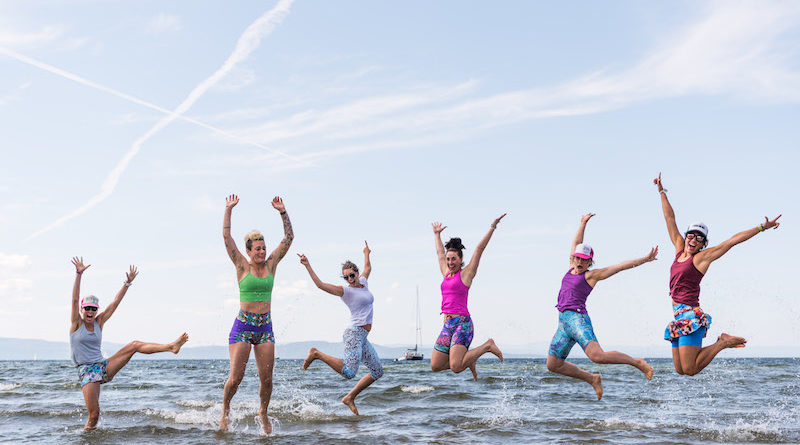
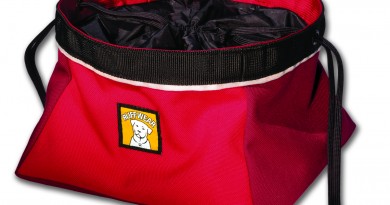
Pingback: Vermont Sports Magazine, November/December 2018 - Vermont Sports Magazine
Pingback: Vermont Sports “Just Sew Stories” - Kaden Apparel
Pingback: Entrepreneurial success in Vermont takes many forms
Pingback: Entrepreneurial success in Vermont takes many forms | ThinkVermont 2.0